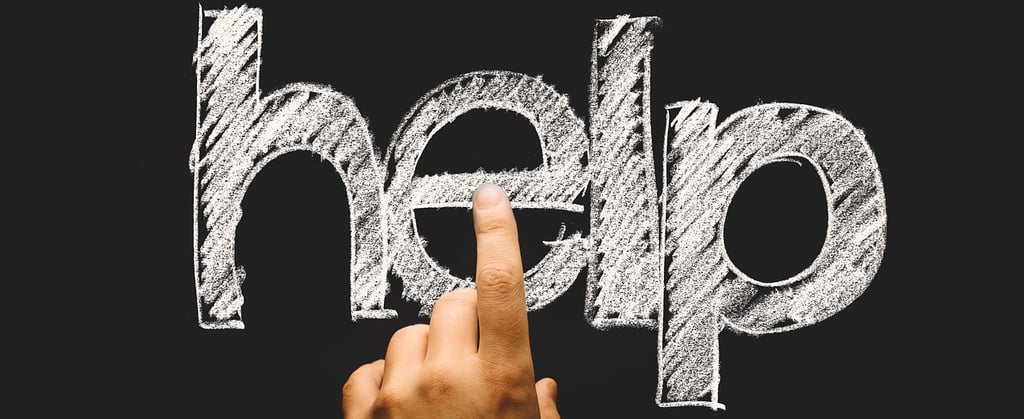How to Tell If You Are in a Codependent Relationship
Relationships should be built on mutual love, respect, and support. However, when one person becomes overly reliant on another, whether emotionally, financially, or even for their sense of identity, it can create an unhealthy dynamic known as codependency.
All In Health
7/25/20253 min read


How to Tell If You Are in a Codependent Relationship
Relationships should be built on mutual love, respect, and support. However, when one person becomes overly reliant on another ; whether emotionally, financially, or even for their sense of identity, it can create an unhealthy dynamic known as codependency. While codependency often develops in relationships where addiction or mental health challenges are present, it can occur in any close relationship, including romantic partnerships, friendships, and family bonds. Recognizing the signs of codependency is the first step toward building healthier connections. Here’s how to tell if you might be in a codependent relationship.
1. You Prioritize the Other Person’s Needs Over Your Own
One of the clearest signs of codependency is when you consistently put someone else’s needs, wants, and feelings above your own, even to your own detriment. If you neglect your well-being to care for or please someone else, it may indicate an unhealthy dynamic.
2. You Feel Responsible for Their Emotions and Actions
Do you feel guilty when the other person is upset, even if their feelings have nothing to do with you? In codependent relationships, one person often takes on the responsibility of managing the other’s emotions, believing it’s their job to “fix” their problems or keep them happy,
3. You Struggle with Boundaries
Healthy relationships require clear boundaries. If you have trouble saying no, feel guilty when asserting yourself, or allow someone to overstep your limits repeatedly, you may be experiencing codependency. This can lead to resentment, exhaustion, and loss of personal identity.
4. Your Self-Worth Is Tied to the Relationship
In a codependent relationship, a person’s self-esteem often depends on how much they are needed or valued by the other person. If your sense of worth comes primarily from helping, rescuing, or being in a relationship with someone, it may be a sign of codependency.
5. You Fear Abandonment or Rejection
A deep fear of being abandoned or alone is common in codependent relationships. This fear can lead to staying in unhealthy situations, tolerating mistreatment, or suppressing personal needs to avoid conflict or rejection.
6. The Relationship Feels One-Sided
While all relationships require compromise, codependent dynamics often feel unbalanced—one person gives much more than they receive. If you feel drained, unappreciated, or like the relationship revolves around the other person’s needs, this could indicate a problem,
7. You Enable Harmful Behaviors
In many cases, codependency involves enabling, which means protecting someone from the consequences of their actions, especially in relationships where addiction or mental health struggles are present. This might include covering for their mistakes, making excuses, or avoiding difficult conversations to “keep the peace.”


Self-Reflection: Assess Your Relationship Patterns
If you're unsure whether you're in a codependent relationship, take a moment to reflect on these questions:
Do I often feel exhausted or emotionally drained by this relationship?
Do I struggle to say no, even when I really want to?
Do I feel responsible for managing the other person’s happiness or emotions?
Do I avoid conflict or suppress my feelings to keep the other person happy?
Have I lost interest in my own goals, hobbies, or well-being because of this relationship?
Do I feel anxious, guilty, or unworthy when I try to set boundaries?
Do I stay in this relationship out of fear of being alone?
Do I make excuses for the other person’s unhealthy behaviors, even when they hurt me?
Do I feel like I have to “fix” or rescue the other person?
Would I encourage a close friend to stay in a relationship like mine?
If you answered yes to several of these questions, you may be experiencing codependency. Awareness is the first step toward change, and you have the power to break free from unhealthy patterns.
Breaking Free from Codependency
Recognizing codependent patterns is an important step toward change. Here are a few ways to start building healthier relationships:
Practice Self-Awareness: Reflect on your behaviors, thoughts, and emotions in relationships. Are you sacrificing your well-being to keep someone else happy?
Set Healthy Boundaries: Learn to say no without guilt and prioritize your needs.
Develop Independence: Focus on your personal growth, hobbies, and goals outside of the relationship.
Seek Support: Therapy, support groups, or talking to trusted loved ones can help you navigate codependent tendencies and build healthier connections.


You Are Not Alone. Seek Help When You Need It.
Taking care of yourself isn’t selfish, it’s necessary. If you recognize signs of codependency in your relationships, know that support is available. Healing from codependency means learning to value yourself, set boundaries, and build relationships that support mutual growth. You deserve connections that uplift and empower you. If you're struggling, don’t hesitate to reach out for help, whether that’s therapy, a support group, or trusted friends.
Would you like to add an example scenario or success story to illustrate recovery from codependency?
GET STARTED TODAY
Your journey. Our commitment. Together, we’re all in.
STAY IN TOUCH
Contact Us
954-445-1567
© 2024. All rights reserved.
Contact Us
